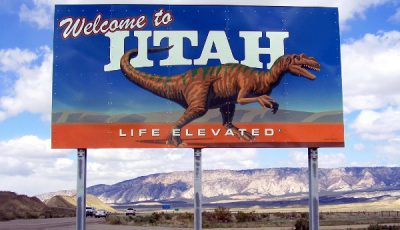We Don’t Need New Law to Address Public Porn Viewing
 WEST HANOVER, Pa. – With the substantial growth of public Wi-Fi availability over the past several years, it’s no surprise the number of people watching porn in public has increased, as well.
WEST HANOVER, Pa. – With the substantial growth of public Wi-Fi availability over the past several years, it’s no surprise the number of people watching porn in public has increased, as well.
Whether it’s porn surfers using New York’s public internet kiosks or fast food patrons having a side of smut with their burgers, one doesn’t have to dig very deeply to find stories of judgment-impaired porn viewers making those around them terribly uncomfortable by turning their surroundings into an open-air adult theater.
Along the way, there have been plenty of calls for businesses to block and filter content accessed via their network (a call some businesses have heeded) and lawmakers have referenced the issue in support for the argument porn has become a public health crisis.
While time may prove me wrong, I believe the growing number of state legislatures that have followed Utah’s lead in declaring porn a public health crisis is a harbinger of things to come. Coupled with the large number of states considering passing some version of the Human Trafficking Prevention Act, the porn-as-public-health-crisis argument represents a re-invigoration of social conservatives’ longstanding desire to impose stricter laws and regulations on the distribution of porn.
Interestingly, a recent arrest stemming from pubic porn consumption (inside a McDonald’s, no less) demonstrates why, at least where the public Wi-Fi portion of this ongoing debate is concerned, no new law is needed to impose consequences on those who view porn in public.
The incident that led to the arrest of Todd McMillan on disorderly conduct charges isn’t what you’d call a “test case,” because there’s really nothing novel about it. Under Pennsylvania’s disorderly conduct and public indecency statutes, it was illegal to display sexually explicit materials in public view long before Wi-Fi was even a concept, let alone a commonly offered amenity at places like Starbucks and McDonald’s.
The laws vary from state to state, of course, but so far as I’m aware, there’s no state in which it’s clearly legal to watch porn in a public space.
In some states, including Texas, the display of such material to other people needn’t be intentional to be considered criminal. All the law requires is for the offender to be “reckless about whether a person is present who will be offended or alarmed by the display or distribution.”
While these offenses typically are classified as misdemeanors, they’re the sort of misdemeanor that looks truly awful on one’s “resume,” so to speak. (Imagine yourself at a future job interview, for example, having to explain the disorderly conduct charge on your record stemmed from not being able to wait until you’d left Starbucks to watch porn.)
To the extent the law can serve as a preventative measure against bad human behavior, some might argue these laws don’t go far enough to deter people from watching porn inside a fast food joint or while standing at an internet kiosk. Of course, others might argue such offense shouldn’t even earn the perpetrator a misdemeanor.
Regardless whether you think a charge of disorderly conduct is too harsh, or not harsh enough, for watching a little porn while waiting for your cappuccino, I would hope we can all agree upon this much : There’s an existing response available to law enforcement if they want to charge the offender with a crime.
Personally, I’m not troubled by private-sector businesses choosing to filter or block the content available over the in-store Wi-Fi networks they provide. These entities are not government-owned, so there’s no “censorship” issue here; it’s just a question of how businesses want to handle their own policies and workspaces.
What does trouble me, however, is the notion of allowing people to sue porn producers over the harms done by their products, which is another of Utah’s bright ideas.
“This bill is not telling any purveyor of pornography that they can’t distribute their product in Utah,” Utah State Sen. Todd Weiler said about his proposed measure in February. “We’re not telling any consumer that you can’t consume a pornographic product in Utah. But what we’re saying is if someone is damaged by your product that they could take their best shot in court and have to meet every evidentiary standard that already exists and have to show damages and whatnot. This is more of a product liability.”
In my view, Weiler’s comment is disingenuous, at best.
If a consumer can prove damages from a porn-related product, then they already have recourse under the law. What Weiler’s bill is really about, especially in light of Utah’s already-stated position porn represents a public health crisis, is further establishing a foundation for the claim porn causes the harms ascribed to it in the state’s resolution.
Of course, even if it is eventually signed into law, Weiler’s porn-product liability concept likely faces legal challenges and court scrutiny, a process it may not be able to survive intact.
Still, the very knowledge state lawmakers like Weiler are actively looking for innovative ways around the First Amendment’s protection of erotic expression is cause for concern, not just for porn producers, but also for porn consumers.
Image © Jonathan Souza.
One Comment
Leave a Reply
You must be logged in to post a comment.














Pingback: We Don’t Need New Law to Address Public Porn Viewing – TripleXers Blog